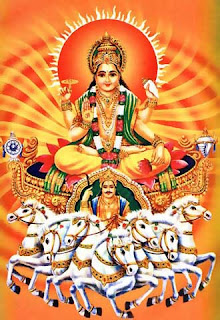 |
| जय श्री कृष्ण |
श्रीधरं माधवं गोपिकावल्लभं जानकीनायकं रामचन्द्रं भजे ॥
अच्युतं केशवं सत्यभामाधवं माधवं श्रीधरं राधिकाराधितम् ।
इन्दिरामन्दिरं चेतसा सुन्दरं देवकी नन्दनं नन्दजं सन्दधे ॥
विष्णवे जिष्णवे शङ्खिने चक्रिणे रुक्मणीरागिणे जानकी जानये ।
वल्लवीवल्वभायार्चितायात्मने कंशविध्वंसिने वंशिने ते नमः ॥
कृष्ण गोविन्द हे राम नारायण श्रीपते वासुदेवाजित श्रीनिधे ।
अच्युतानन्त हे माधवाधोक्षज द्वारकानायक द्रौपदीरक्षक ॥
राक्षसक्षोभितः सीतया शोभितो दण्डकरण्यभूपुण्यताकारणः ।
लक्ष्मणेनान्वितो वानरैः सेवितो ऽगस्त्यसम्पूजितो राघवः पातु माम् ॥
धेनुकारिष्टकानिष्टकृद्द्वेषिहा केशिहा कंसह्रद्वंशिकावादकः ।
पूतनाकोपकः सूरजाखेलनो बालगोपालकः पातु मां सर्वदा ॥
विद्युदुद्योतवत्प्रस्फुरद्वाससं प्रावृडम्भोदवत्प्रोल्लसद्विग्रहम् ।
वन्यया मालया शोभितोरःस्थलं लोहिताङ्घ्रिद्वयं वारिजाक्षं भजे ॥
कुञ्चितैः कुन्तलैर्भ्राजमानाननं रत्नमौलिं लसत्कुण्डलं गण्डयोः ।
हारकेयूरकं कङ्कणप्रोज्ज्वलं किङ्किणी मञ्जुलं श्यामलं तं भजे ॥
अच्युतस्याष्टकं यः पठेदिष्टदं प्रेमतः प्रत्यहं पूरुषः सस्पृहम् ।
वृत्ततः सुन्दरं कर्तृविश्वम्भरस्तस्य वश्यो हरिर्जायते सत्वरम् ॥
श्रीमच्छङ्कराचार्यकृतमच्युताष्टकं शुभम् ।
Achyutastakam in English and Unicode Sanskrit
Achyutham Kesavam Rama-Narayanam
Krishna-Damodaram Vasudevam Harim;
Shreedharam Madhavam Gopikavallabham
Janakee-Nayakam Ramachandram Bhaje[1]
Achyutham Keshavam Satyabhamadhavam
Madhavam Shreedharam Radhikaradhakam;
Indiramandiram Chetasa Sundaram
Devakee-Nandanam Nandajam Sandadhe[2]
Vishnave Jishnave Shakhine Chakrine
Rukmineeragine Janakeejanaye;
Vallaveevallabha Yarchitayatmane
Kamsavidhvamsine Vamshine Te Namah[3]
Krishna Govinda he Rama Narayana
Shreepate Vasudevajite Shreenidhe;
Achyutanata he Madhavadhokshaja
Dvarakanayaka Draupadee-Rakshakaa[4]
Rakshasakshobhitah Seetayah Shobhito
Dandakaranya Bhoopunyata Karanah;
Lakshmanenanvito Vanariah Sevito
Gastyasampoojito Raghavah Patumam[5]
Dhenukarishtaka Nishtakriddveshinam
Keshiha Kamsahridvamshiko vadakah;
Poothanakopakah Soorajakhelano
Bala-Gopalakah Patu mam Sarvada[6]
Vidyududyotavan Prasphuradvasasam
Pravridambhodavat Prollasavigraham;
Vanyaya Malaya Shobitorasthalam
Lohitanghridvayam Varijaksham Bhaje[7]
Kunchitaih Kuntalairbhrajamananam
Ratnamaulim Lasatkundalam Gandayoh;
Harakeyoorakam Kankanaprojjvalam
Kinkineemanjulam Shyamalam Tam Bhaje[8]
Achyuta syastakam Yah Pathedistadam
Prematah Pratyaham Purusah Saspruham;
Vrittatah Sundaram Kartrivisvambharas
Tasya Vasyo Harirjayate Satvaram[9]
Achyutastakam Meaning
(pronounced Acyutāṣṭakam)
I adore Rāmacandra, Who is infallible, Who is Keśava, Rāma, Nārāyaṇa, Kṛṣṇa, Dāmodara, Vāsudeva, Hari, Śrīdhara, Mādhava, Who is dear to Gopikā, and Who is the consort of Jānakī.[1]
I offer a salute with my hands together to Keśava, Who is infallible, Who is the consort of Satyabhāmā (as Kṛṣṇa), Mādhava, Śrīdhara, Who is longed-for by Rādhikā, Who is the temple of Lakṣmī (Indirā), Who is beautiful by thought, Who is dear to Devakī, and Who is dear to all.[2]
Salutations for Viṣṇu, Who conquers everyone, Who holds a conch-shell and a discus, Who is dear to Rukmiṇī (Kṛṣṇa), Who is the consort of Jānakī (Rāma), Who is dear to cowherdesses, Who is offered [in sacrifices], Who is the Ātman (soul), Who destroyed Kaṁsa, and Who plays the flute.[3]
O Kṛṣṇa! O Govinda! O Rāma! O Nārāyaṇa, Who is the consort of Lakṣmī! O Vāsudeva, Who attained the treasure of Lakṣmī! O Acyuta, Who is immeasurable! O Mādhava, O Adhokṣaja, Who is the leader of Dvārikā, and Who is the protector of Draupadī!1[4]
May Rāghava — Who upsetted the demons, Who adorned Sītā, Who is Danḍaka-forest purification cause, Who is accompanied by Lakṣmaṇa, Who was served by monkeys, and Who is revered by Sage Agastya — protect me.[5]
May Baby Gopāla (Kṛṣṇa) — Who was unfavorable to Dhenukāsura and Ariṣṭāsura, Who destroyed Keśī, Who killed Kaṁsa, Who plays the flute, and Who got angry on Pūtanā2 — always protect me.[6]
I sing praise of Acyuta, Who is adorned by a lightening like shining yellow robe, Whose body is resplendent like a cloud of the rainy-season, Who is adorned by a wild-flower garland at His chest, Whose twin-feet are of copper-red color, and Who has lotus-like eyes.[7]
I sing praise of that Śyāma, Whose face is adorned by falling locks of curly tresses, Who has jewels at forehead, Who has shining ear-rings on the cheeks, Who is adorned with a Keyūra (flower) garland, Who has a resplendent bracelet, and Who has a melodious anklet.[8]
Poet: Ādi Śaṅkara
Book: Bṛhatstotraratnākaraḥ
Translation by Animesh Kumar
Achyut, Keshav, Krishna, Narayan, Srimad Shankraracharya krit, Vishnu, अच्युताष्टकम्, श्रीमच्छङ्कराचार्यविरचित,


